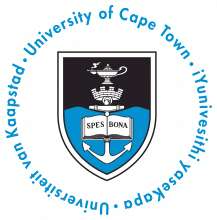A new code aimed at stamping out “ethics dumping” is gaining momentum, with the University of Central Lancashire becoming the second university to adopt it.
The Global Code of Conduct for Research in Resource-Poor Settings (GCC), drawn up in response to a European Commission call for action, opposes double standards in international research, especially taking advantage of the lack of awareness, regulation or enforcement in some poorer countries to conduct unethical work that is proscribed in developed countries.
Examples of unethical research practices being offshored include work that imposes high risks on research participants who are unlikely to benefit from the study’s results, as might be the case in some medical trials, failing to respect cultural requirements and refusing to compensate for harm incurred during a study.
The European Commission coined the phrase “ethics dumping” to describe the export of unethical research practices from high-income countries, such as the US and European states, to middle- and low-income countries, where it may be easier to carry out such practices undetected.
The University of Cape Town was the first university to adopt the new code, in April this year, with Uclan now following suit.
The GCC was developed by TRUST, a European Union-funded project, which is led by Doris Schroeder. The code was developed between October 2016 and April 2018 and launched in the European Parliament in June 2018.
Professor Schroeder, director of the Centre for Professional Ethics at Uclan, said she was delighted that her institution had become the first European university to adopt the code and “send out a clear message against ethics dumping”.
She told Times Higher Education that the code’s adoption by the European Commission as a mandatory reference document for all research funded under the Horizon 2020 programme gave the movement against ethics dumping the “best possible start”.
The feedback she has received suggests that applicants to Horizon 2020 and ethics reviewers have begun to use and accept the code “surprising swiftly”.
“For entire universities with thousands of research staff to commit to the code is a major success, which shows that the movement is growing further,” added Professor Schroeder.
Individual research leaders have also expressed interest in the code, and major projects have committed to applying it, she said.
As with any efforts to bolster research integrity, such as tackling plagiarism, it might “not always be successful but it is highly important” that universities from high-income settings such as the UK “commit to a policy of ‘no ethics dumping’ publicly”, she argued.
Having adopted the code, Uclan is now developing an implementation strategy, which is scheduled to be made public in 2020.
“This would help other universities see what is involved and hopefully also what the benefits are,” said Professor Schroeder.
Lyn Horn, director of the Office of Research Integrity at the University of Cape Town, said the impact of the code had been “limited” to date.
“Universities, including ourselves, who have now adopted the code do need to take concrete steps to create awareness and monitor its implementation,” explained Dr Horn.
Register to continue
Why register?
- Registration is free and only takes a moment
- Once registered, you can read 3 articles a month
- Sign up for our newsletter
Subscribe
Or subscribe for unlimited access to:
- Unlimited access to news, views, insights & reviews
- Digital editions
- Digital access to THE’s university and college rankings analysis
Already registered or a current subscriber?





